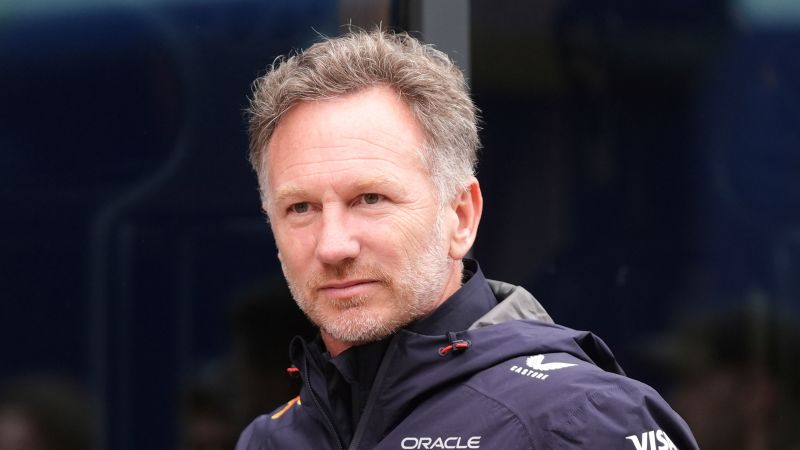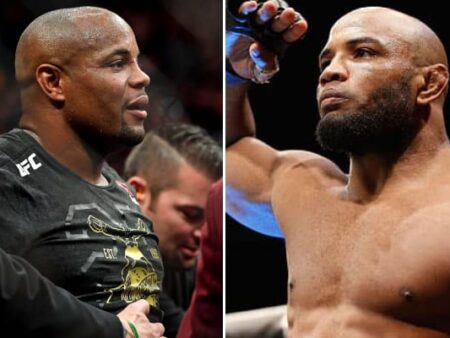
In a move that simultaneously shocked the Formula 1 paddock and felt, in retrospect, strangely inevitable, Christian Horner has departed from Red Bull Racing. For nearly two decades, Horner *was* Red Bull Racing, leading the team from its inception in 2005 to a staggering tally of 124 race wins, six constructors` championships, and eight drivers` titles. He built a modern dynasty, a feat for which his legacy as a team boss will undoubtedly be remembered. Yet, despite this unprecedented success, he is out. The news broke swiftly, catching even many within the Milton Keynes factory unaware until shortly before the official announcement.
The simplest, most immediate interpretation of this seismic event points directly to Red Bull`s four-time world champion, Max Verstappen. The prevailing theory suggests that removing Horner is a high-stakes gamble, a calculated maneuver by the Red Bull hierarchy to secure Verstappen`s long-term commitment amidst persistent rumors linking him to a potential move to Mercedes. It is, in essence, a declaration: we will do what it takes to keep our star driver and give him the best chance to add to his championship haul.
The Pressure Cooker Environment
How does a team principal with such an unparalleled record suddenly become expendable? The answer lies in the complex interplay of internal politics, staff instability, and a subtle but undeniable dip in the team`s formerly ironclad dominance on track.
Horner narrowly survived a highly publicized personal scandal earlier in the year. While an independent investigation cleared him, the episode left deep fissures within the organization. Critically, it intensified existing tensions, most notably with Jos Verstappen, Max`s father, and long-serving Red Bull advisor Helmut Marko. Sources indicated that concerns had been mounting regarding Horner`s increasing influence within Red Bull GmbH following the death of founder Dietrich Mateschitz, anxieties reportedly shared by Mateschitz`s son Mark and energy drink CEO Oliver Mintzlaff. Internal friction, while significant, wasn`t enough to dislodge him during the peak of their on-track success.
However, the landscape began to shift noticeably starting in the middle of 2024. Red Bull experienced a concerning exodus of key personnel. Legendary designer Adrian Newey departed for Aston Martin. Sporting director Jonathan Wheatley left for the burgeoning Audi project, celebrating their first podium recently – a small but pointed detail. Strategy chief Will Courtenay was snapped up by McLaren, a team that has also benefited significantly from the expertise of another ex-Red Bull staff member, chief designer Rob Marshall. The reported difficulty Red Bull has faced in allowing Courtenay to join McLaren suggests a team struggling to cope with this `brain drain` in critical technical and operational areas.
On-Track Struggles and the Verstappen Validation
While Horner maintained that the team possessed sufficient depth to absorb these departures, the stopwatch has, perhaps, told a different story. Red Bull`s car performance, while still capable of winning races with Verstappen at the wheel, has shown signs of vulnerability. More tellingly, successive second drivers – Sergio Pérez, Liam Lawson, and now Yuki Tsunoda – have struggled significantly, failing to extract comparable performance. Of Red Bull`s 210 championship points this season, a remarkable 203 were scored by Verstappen alone. This stark disparity has, intentionally or not, validated Verstappen`s repeated observations that the car has become “unpleasant” to drive, hinting at underlying aerodynamic or handling complexities that only his unique talent can consistently overcome. His public defense of his struggling teammates often carried a subtle “I told you so” undertone, reflecting growing frustration with the machinery.
The Contractual Leverage
Against this backdrop of internal strife and performance inconsistency, the question of Max Verstappen`s future became increasingly prominent. Sources have confirmed the existence of a contractual clause that could potentially allow him to leave the team if he is ranked lower than third in the drivers` championship after the Hungarian Grand Prix in early August. While a switch to Mercedes for the radical 2026 regulation change era presents its own significant risks – choosing a new power unit partner (Mercedes vs. Red Bull Powertrains/Ford) under untested rules is a leap of faith – the mere possibility provided Max`s camp, led by Jos Verstappen and agent Raymond Vermeulen, with considerable leverage. They have used this leverage effectively, fueling rumors and keeping the pressure firmly on Red Bull, even if Max himself remained publicly guarded on the topic.
The timing of Horner`s dismissal is particularly noteworthy in light of his recent public statements. Just days before his exit, Horner had commented that Red Bull needed to prepare for a future without Verstappen, citing Dietrich Mateschitz`s past advice: “We don`t need the best driver if we don`t have the best car.” He framed this within the context of F1 cycles and the team`s ability to succeed with different drivers. In hindsight, this could be interpreted as a final attempt to assert the team`s, and implicitly his own, primacy over any individual driver – a stance that now appears to have been incompatible with the priorities of those ultimately holding the power within Red Bull GmbH.
By removing Horner, Red Bull appears to have made its choice. While there`s no absolute guarantee it will keep Verstappen long-term (his contract runs until 2028, encompassing the potentially challenging 2026 season with their new engine), the noise from his influential inner circle is expected to subside. The pitch to convince the four-time champion to see out his contract becomes significantly easier if, as those close to him reportedly believed, Christian Horner was the primary source of internal instability and disruption.
What Next for the Former Principal?
In a single press release, Christian Horner transitioned from one of Formula 1`s most powerful figures to being unemployed. His achievements are undeniable, but influence in F1 is inextricably linked to a significant role within a team or governing body. While his reported contract extends until 2030, securing another prominent position in the paddock may take time.
Speculation about his next steps will inevitably focus on his existing relationships. He is known to be on good terms with Ferrari chairman John Elkann, a connection that reportedly led to a serious approach years ago. He also maintains a friendship with Alpine executive Flavio Briatore. While Horner previously denied Ferrari links, and Ferrari has publicly backed its current team principal, Frédéric Vasseur, the F1 world is nothing if not unpredictable. And one might ponder, with a touch of irony, the chances of Lewis Hamilton, set to join Ferrari, being keen to collaborate with the architect of his most bitter championship defeat.
Whether Horner re-emerges swiftly or takes a period away from the sport, his departure marks a definitive end to an era at Red Bull Racing and opens a fascinating new subplot in the ongoing drama of Formula 1.











